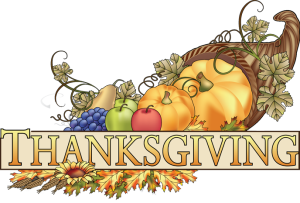Michele Huey's Blog: God, Me, and a Cup of Tea, page 53
November 22, 2015
Thanksgiving – Then and Now
For I have learned, in whatsoever state I am, therewith to be content. – Philippians 4:11 (KJV)
I’m thankful for the muddy floor that greets me every day.
I’m thankful for the dirty socks that on the floor doth lay.
I’m thankful for the fingerprints that deck both chair and wall.
I’m thankful for the daily dust that on the desk doth fall.
I’m thankful for my kitchen sink that hides the dirty dish.
I’m thankful for the splattered wall from when I fried the fish.
I’m thankful for the Cheerios, Playdoh, and other yuck,
And all the stones and crayons that plug my sweeper up.
I’m thankful for the toothpaste smeared on the bathroom door.
I’m thankful for the wad of gum stuck to the kitchen floor.
I’m thankful for the scattered toys that often piece my feet
When I must run to get the phone before I’ve time to sweep.
I’m thankful for the mending I love so much to do
That I hide it in the corner and buy them something new.
I’m thankful for the unmade beds – they mean I’m not alone.
I’m thankful for so many things that make our house a home.
I wrote the above poem years ago when the kids were still home and driving me crazy. Oh, how I longed for the time they’d be all grown up and on their own! Oh, how I craved a house that stayed clean and “red up.”
Now the kids are grown and gone, raising families of their own. The house stays clean – and too quiet. I miss the noise and chaos that come with raising a family.
Can’t we humans ever be happy? When we have one thing, we yearn for something else. When we have that something else, we want what we had.
Why, I wonder, can’t I be like the Apostle Paul, who said he was content whatever the circumstances of life (Philippians 4:11)? And he wrote those words while under house arrest. Haha – I felt like I was under house arrest back when I wrote that poem.
But time moves on, doesn’t it?
I’m learning to embrace each season of my life as it unfolds, whether or not it unfolds the way I’d planned and dreamed.
You see, God is in control, and He has a purpose for each of us in every season of life. He knows the end from the beginning. “All the days ordained for me were written in Your book before one of them came to be,” the psalmist wrote (Psalm 139:16).
This year we’ll celebrate Thanksgiving the Saturday following the holiday. Our oldest son, who loves to cook, will prepare a turkey dinner. Our youngest son and his girlfriend will drive home from Ebensburg for the day. Three of our five grandchildren will be here. Sometime during the chaos, our daughter, who lives 650 miles away, will call and the phone will be passed around.
The house will ring with laughter and conversation and family love—and remind me that my house is still a home.
You have blessed me with so much, Lord. Remind me in my disgruntled moments to be content with whatever I have—because whatever I have comes from You, the giver of every perfect gift (James 1:17). Amen.
Extra tea: Read and meditate on Philippians 4:4–13
Happy Thanksgiving to my readers!
May God open the windows of heaven and pour out His abundant blessings on you and your families — a good measure, pressed down, shaken together, running over — so much you will not have room enough for it!
Love, Michele


November 15, 2015
Where Is God When I Hurt?

When you pass through the waters, I will be with you; when you pass through the rivers, they will not sweep over you. – Isaiah 43:2 (NIV)
I met the most extraordinary man last Saturday.
A multi-published author, Mike Dellosso not only taught a workshop on finding the time to write, but also gave the keynote speech at the beginning of the one-day writing conference I attended.
In his address, “Becoming Unstoppable,” Mike talked about how to move forward toward realizing our goals despite – or because of – the roadblocks that slam down in front of us. He spoke of the roadblocks of fear, failure, and suffering. And he spoke from experience.
You see, Mike grew up with a profound stutter. Yet I could detect only a slight hesitation and an occasional stutter as he spoke and taught for a total of two hours. He certainly could talk of fear and failure with firsthand knowledge.
But overcoming such a profound disability isn’t the only thing that amazes me about Mike.
Eight years ago, at the age of 35, this husband, father, and teacher was diagnosed with stage 3 colon cancer.
Yet there he stood before us, the picture of health, revisiting that time of intense suffering and uncertainty when life was reduced to nothing but pain.
Have you ever been there?
I have. In 2011, pain from four bulging neck disks was so excruciating, so debilitating, I spent my days on the love seat with a heating pad on my neck and Tylenol with codeine coursing through my body. Yet it barely took the edge off. I was that way for six months until surgery relieved the pain.
“Suffering,” Mike said Saturday, “clears away everything in life. There’s nothing left but the suffering, the pain. The way we get through it is depending on God, running to God.”
Suffering, he said, brought his relationship with God’s Son in clearer focus.
“I never had – nor ever since – felt the presence of God so strongly. I’m almost afraid to admit it, but sometimes I almost wish I could go back to that time of pain just so I can have the presence of God again like I did at that time.”
Wow.
A purpose for our pain: a clearer focus on the God who calls us, loves us, gave Himself for us.
Where is God when you hurt?
Right there beside you, with you, surrounding you, in you. Calling to you. Holding you. Soothing you. Loving you.
“Do not be afraid,” He says, “for I am with you. Fear not, for YOU ARE MINE” (Isaiah 43:5, 1 – emphasis mine).
Remember, dear one, you are His: “The LORD your God is with you, He is mighty to save. He will take great delight in you, He will quiet you with His love, He will rejoice over you with singing” (Zephaniah 3:17).
In your suffering, listen for His song.
Thank you, Father, for Your abiding presence in my life. Thank you, Jesus, that You suffered more than I, even in my most intense pain, cannot even imagine. Yet You did it for me so my sin could be removed and my eternal life with You secured. May my pain remind me of Your suffering for me. Amen.
Extra tea: Read and meditate on Isaiah 43:1–7
Click here to visit Mike Dellosso online.


November 8, 2015
Getting to the Bottom of It
Let us throw off everything that hinders and the sin that so easily entangles, and let us run with perseverance the race marked out for us. – Hebrews 12:1 (NIV)
The rash developed last month. It flared on the inside of both my wrists and itched like hives.
I smeared hydrocortisone cream on it several times a day, but it blistered, seeped, scabbed over—and spread. Assuming it was eczema, I bought a tube of eczema relief cream—not the cheap stuff, either. It didn’t help.
Could it be an allergic reaction?
I’d had a persistent rash last year, too, that disappeared when I stopped eating foods containing gluten, a substance in wheat, barley, and rye.
I’d recently been eating a lot of bread, pasta, sweets—not a good thing. I discovered 20 years ago the ill effects of those foods on my body—the fatigue, the weight gain, the in ability to lose it, the brain fog. All those foods contain gluten. When I eliminated them from my diet, I felt better.
ability to lose it, the brain fog. All those foods contain gluten. When I eliminated them from my diet, I felt better.
But like the author of Proverbs wrote, “As a dog returns to its vomit, so a fool repeats his folly” (Proverbs 26:11).
Over the years, I yoyoed between eating refined carbs and avoiding them. I felt good when I didn’t eat them, but then I’d convince myself just a little taste wouldn’t hurt. And the little taste became a bigger taste—until I went hog wild eating bread and pasta and overwhelming my body with what’s essentially bad for it. Which is what I did last month.
I researched online, typing “rash on the inside of wrists” in my browser. I really didn’t expect the long list of web pages relating to gluten-causing rashes.
So, once again, I eliminated gluten from my diet and began scrutinizing labels to make sure there was no cross-contamination at the manufacturing plant.
In a week the rash calmed down and faded.
You’d think I’d know better.
Isn’t sin the same way?
We know, in our heart of hearts, it’s bad for us. But we dabble in it because we’ve convinced ourselves “just a little won’t hurt” or “it won’t affect me.”
But we’re dead wrong.
There’s no difference between sinning a little and sinning a lot. Sin is sin, and its effects are the same: it separates us from a loving, holy God; it corrupts and contaminates that which was good and pure; it entangles us (Paul often uses the analogy of slavery when he refers to sin); it brings sorrow; and it affects not only the sinner, but also those who are innocent.
There is no salve we can put on to make it go away; no medicine we can take will cure it.
To get rid of the rash, I first had to admit gluten was causing it. Then I had to eliminate all gluten from my diet. I must be vigilant to make sure it doesn’t sneak in by the back door of a seemingly innocent food.
So it is with sin. We must admit we’ve sinned (Romans 3:23), confess it to God (1 John 1:9), and, with the help of the indwelling Holy Spirit, recognize it when it tries to sneak back in (John 16:13).
My rash has almost disappeared. I have more energy, I’m thinking more clearly, and I’m sleeping better.
Remind me, Lord, when temptation comes, that nothing sin can give me is worth what it takes from me. Provide me with the way out (1 Corinthians 10:13). Amen.
Extra tea: Read and meditate on James 1:13–18


November 1, 2015
Stuck in Searching Mode
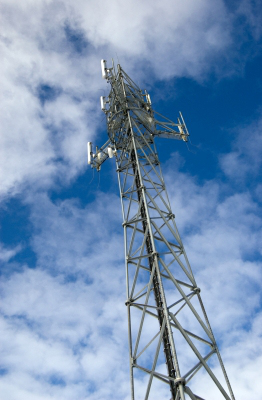
Image courtesy of marcolm at FreeDigitalPhotos.net
“And you will seek Me and find Me, when you search for Me with all your heart.” – Jeremiah 29:13 (NKJV)
I wasn’t a happy camper this week. I had to replace a cell phone that wasn’t even two years old.
You get these newfangled gadgets, and you expect them to work the way they’re supposed to for as long as they’re supposed to. And when they don’t . . . well, let’s just say I added one more item to the list of extra, unintended, over-the-top-of the-budget expenses for this year.
The phone worked great all weekend—hubby and I went camping, remember. We were in the Allegheny Mountains, where the cell signal plays peek-a-boo—now you have it, now you don’t.
Searching for a signal from a cell tower eats up a lot of battery power. On the way home Sunday, I recharged the cell phone battery using the car charger.
“That’s odd,” I told Dean when we got home. “This took two hours to recharge. It should have taken a half an hour at the most.”
But that wasn’t the only thing odd. In the upper left of the screen, instead of displaying “No Service” or the strength of the signal, it was showing “Searching.” I’d never noticed that before.
It was still searching for a signal the next day—and I can see the top of the nearest cell phone tower from my house (when the trees are bare).
I rebooted the phone several times. A cell phone is like a mini-computer. When something’s not working properly, usually turning it off then back on—called rebooting—will fix the problem.
But, nada. So I did a soft reset. Nothing. I connected with a service technician online and under her tutelage did a hard reset, resetting it to factory specs and wiping out everything on the phone. (Not to worry—my nearly 800 pictures were saved on my computer.)
But the hard reset, which fixes most problems, didn’t work. The phone was still searching for a signal.
Apparently the antenna inside stopped working, and the only way to fix it was to send it away—that is, if it could be fixed.
I got a new phone.
We, too, come equipped with an antenna, but ours searches for the Creator, who, like a cell tower, sends His loving and guiding signals to us constantly.
Sometimes we’re stuck in “searching” mode because we search for the wrong things in the wrong places. We don’t even realize it’s God for whom we’re searching. Sin has corrupted our antenna.
Like a cell phone, until we connect with His signal, we won’t work right, either.
But there’s good news: Our antenna can be fixed.
God promises us in His Word that if we search for Him with all our hearts, we will find Him (Jeremiah 29:13). That “if we confess our sin, He is faithful and just to forgive us our sin and to cleanse us from all unrighteousness” (1 John 1:9).
When we do, He fixes that broken antenna—and we receive His signals loud and clear and strong.
Don’t be stuck in “searching” mode. Get that antenna fixed today.
Thank you, Loving God, that Your signals are always beaming. Help me to keep my antenna in working order so I may receive them and work the way I should. Amen.
Extra tea: Read and meditate on Jeremiah 29:10–14


October 25, 2015
Use Your Binoculars the Right Way
Oh, magnify the LORD with me. – Psalm 34:3 (NKJV)
Except for a few last-minute items, the camper is packed for our final camping trip of the year. Although rain is in the forecast, we’re hoping it’ll hold off long enough for us to hike one of the trails we hiked last spring—the Buzzard Swamp Trail in the Allegheny National Forest.
Experiencing nature, to me, is experiencing God. I stop frequently to enjoy the scenic view, listen to the calls of wildlife or the ripple of a brook, or inhale the scent of pine and humus—and thank the Creator for His awesome work.
We’ll stuff a backpack with our lunch, water bottles, protein snacks, and raingear. We’ll take my walking stick, the camera—and the binoculars.
We don’t want to forget the binoculars, like we did on one hiking trip. Without them, we miss so much. With them, we can see things in the distance closer, clearer, and bigger—that is, if we use them the right way.
Now, who in their right mind would use binoculars the wrong way? While it does take some fiddling with the dial to adjust the view, it doesn’t take a member of Mensa to know how to use field glasses. It’s pretty obvious which part you hold up to your eyes. If you hold the wider end to your eyes, though, the view becomes smaller, more distant.
We have “binoculars” to help us to see God better, too—nearer, clearer, and bigger. But I fear sometimes we use them the wrong way and thus perceive God as distant, fuzzy, and little.
One type of spiritual binoculars is prayer. Talking to God doesn’t actually bring Him closer, just like binoculars don’t bring what you’re looking at through them physically closer. But they do help you to see distant things as though they were nearer. Remember, God is always with you (Hebrews 13:5; Psalm 139), whether or not you feel His presence. The binoculars of prayer, though, bring you closer to God. “Draw near to God and He will draw near to you” (James 4:8).
Another type of spiritual binoculars is Scripture. As I spend more time in God’s Word, my perception of Him becomes clearer. (John 1:1)
Another type of spiritual binoculars is nature itself. I see God in the sky, the trees, the wind, the rain, the rainbow—everything in nature reflects the Creator, who is much, much bigger than the God I can only imagine. The universe—the heavens, the earth, and all of space and what it contains—cannot contain Him. He is infinite, not limited by space or time. (1 Kings 8:27, 2 Peter 3:8)
The problem is sometimes we use the binoculars the wrong way. We hold the wider end to our eyes—and get a much smaller view.
Maybe some folks are content with a small view of God. It makes them more comfortable, feeling more in control.
But remember, the binoculars are simply a device to improve our perception—it doesn’t change what we’re viewing. No device will make God any smaller or bigger.
“I AM WHO I AM,” God told Moses when he asked God His name (Exodus 3:14).
God is who He is—unchanging, eternal, holy, omniscient, omnipresent, omnipotent, all-wise, infinite, good, faithful, merciful, loving, just, true, majestic, and sovereign.
Wow, that’s huge.
Are you using your spiritual binoculars the right way?
Open the eyes of my heart, Lord. I want to see You in all Your glory. Amen.

Rainbow over Smithport Friday, Oct. 16, 2015
Extra tea: Read and meditate on Psalm 34


October 18, 2015
The Fruit of Kindness
The fruit of the Spirit is . . . kindness. – Galatians 5:22 (NIV)
Be kind and compassionate to one another. – Ephesians 4:31 (NIV)
When I was stopped behind a car waiting to make a left turn on a busy road last week, I was a bit antsy, especially since there was no left-turn lane. Left-hand turns, as you know, can be dangerous.
I was headed north—a tad late for my appointment—and there was no break in the steady southbound traffic. Time to practice that patience I talked about last week, huh?
Imagine my delight and surprise when a southbound vehicle stopped and gestured for the car in front of me to make the left turn. The driver didn’t have to do that—he had the right-of-way. It didn’t take but a few seconds and traffic was moving again.
Kindness is still alive and well in the world today despite the macabre headlines we read daily.
In the Old Testament, we read about a young widow, Ruth, who refused to leave her mother-in-law, Naomi, also a widow. Naomi and her family had moved from Israel to the land of Moab—not a country friendly to the Jews—during a time of severe famine. During their extended stay, both sons married Moabite women. Then Naomi’s husband died. Then both her sons.
Now, in those times, there wasn’t anyone more helpless than a widow. Girls were raised to become wives and mothers, so when they were widowed, they had to depend on relatives to support them.
Problem: Naomi was in a foreign land, far from relatives who could help her. So she decided to go back home. Her two Moabite daughters-in-law would go with her. But partway on the journey, Naomi told them to go back. She knew they’d have no future in Israel. One daughter-in-law turned back, but Ruth refused.
“Don’t urge me to leave you or to turn back from you,” she said. “Where you go I will go, and where you stay I will stay. Your people will be my people and your God will be my God. Where you die I will die, and there I will be buried. May the LORD deal with me, be it ever so severely, if anything but death separates you and me” (Ruth 1:16–17).
What kindness!
Later on in the story, we read how Boaz, a relative of Naomi, showed kindness to Ruth because of her kindness to Naomi. To make a long story short, Boaz married Ruth, and the result of that union was a baby boy named Obed, who became the father of Jesse, who became the father of David, from whose line the Messiah came.
Ruth had no idea what the extraordinary result of her kindness would be.
In Luke 16, Jesus tells the story of a man who had opportunity daily to show kindness to a sore-covered beggar at his gate. But he didn’t. And he reaped the fruit of his unkindness.
What about you? Will you be like the rich man in Jesus’ parable, who was blind to the opportunity to show kindness? Or Ruth, whose kindness rippled through time and continues to bless us today?
Open my eyes, Lord, to the many opportunities I have each day to show kindness to others. Amen.
Extra tea: Read and meditate on Ruth 2 and Luke 16:19–31. I encourage you to read the entire book of Ruth. It’s not long (only 4 chapters), but it’s a beautiful, heartwarming story.


October 11, 2015
Don’t Pray for Patience!
The fruit of the Spirit is . . . patience. – Galatians 5:22 NIV
I was never known for my patience. Waiting time meant fidgeting time, and I wasn’t one to fidget long before looking for a way to decrease the wait time (translate: run ahead of God).
When the man of my dreams came along—THE one—I didn’t even wait for him to propose. I planned the wedding then told him about it. Good thing he was on the same page as I was.
My late mther-in-law once gave me a refrigerator magnet that read, “God, grant me patience, and I want it NOW!”
Sometime after our first child was born, I realized my impatience (and other not-so-nice traits) was making me—and everyone around me—miserable. So in desperation, I asked God to help me.
While I can’t remember a time when I wasn’t a believer—when I didn’t sense the presence of God in my life—this was a turning point—of me turning my life over to God, of me relinquishing control.
Actually, it was an exchange—my miserable life for His glorious one. A.W. Tozer called this “the implantation of the Divine.” I like that term. God implanted His life in me—new life, a better life, abundant life, eternal life (see John 3:1–21). The moment I received the gift of this life, the Holy Spirit came to dwell in me (1 Corinthians 3:16).
Bear with me here. I don’t mean to preach. But after all these years, I’m finally beginning to wrap my head around what all this means.
When I said “yes” to God, He began a work in me (see Philippians 1:6 and 2 Corinthians 5:17), developing the fruit of the Spirit. Of course, I wanted to be a mature Christian right away—remember the refrigerator magnet?
But fruit isn’t fully mature, ready to harvest, immediately. It first appears as a tiny bud that grows into a fruit that ripens over time. It withstands all kinds of weather conditions, which make it stronger, better.
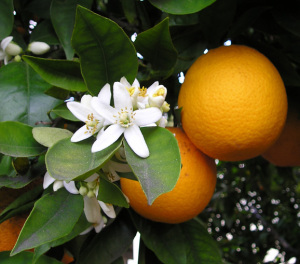
So it is with the fruit of the Spirit. “Fruit,” remember, is singular, not plural. Think of an orange: one fruit, many segments.
And one of those segments is patience.
As a young Christian, I was told, “Don’t pray for patience.” Why? Because when you pray for patience, you get plenty of opportunities to practice it.
Patience, as with all the other fruit of the Spirit, takes a lifetime to develop fully. Who wants a lifetime of hard times, difficult situations, impossible circumstances? Yet those times will come, whether we ask for them or not. God will not leave us baby Christians.
James writes, “Dear brothers, is your life full of difficulties and temptations? Then be happy, for when the way is rough, your patience has a chance to grow. So let it grow, and don’t try to squirm out of your problems. For when your patience is finally in full bloom, then you will be ready for anything, strong in character, full and complete” (James 1:2–4 TLB).
These days, I’m much better at waiting—although I still won’t pray for patience. If God wants to send me something that will strengthen it, I know He’ll give me the grace to endure it.
Now if God can change a squirming, fidgeting, impatient person like me, imagine what miracles He can work in your life!
Thank you, Lord, for Your life in me. Thank you for taking the ugly parts of me and making them beautiful. Amen.
Extra tea: Read and meditate on James 1:2–4
NOTE: Concerning salvation and new life in Christ, I like Dr. Steve McVey’s perspective:
In his book, 52 Lies Heard in Church Every Sunday, Dr. Steve McVey writes, “Salvation is not a matter of you giving your life to Christ. In fact, it has nothing whatsoever to do with what you have given God. Grace revolves around what He has given us, not what we give to Him! You receive eternal life not because you gave Christ your life. You receive eternal life because He gave you His Life!”
Do I hear “Amen!”?
*****
I’ll be releasing my FALL NEWSLETTER soon. If you haven’t yet subscribed and want to keep up to date with upcoming book releases, what I’m working on, where and when I’ll be speaking, and other goings on in my professional (and personal) life, you can subscribe to Memo from Michele, my e-newsletter, by clicking HERE. Once you subscribe, you’ll receive the newsletter in your email. I won’t flood your inbox, I promise. You can unsubscribe at any time. If you’d like to read the latest newsletter, click HERE.


October 4, 2015
Keeping the (Inner) Peace
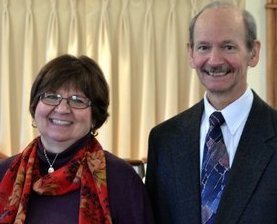
Me and my big brother, Pete, January, 2015
You will keep him in perfect peace, whose mind is stayed on You, Because he trusts in You. – Isaiah 26:3 (NKJV)
The phone rang Sunday morning as I was putting the finishing touches on my sermon.
The caller was my brother, Pete, who was experiencing serious health issues and requested prayer.
“Get yourself to an emergency room as soon as possible,” I told him. Then I prayed with him over the phone.
“What’s going on?” my husband asked as I hung up.
I related Pete’s symptoms. “From the sound of it, he needs immediate surgery. And he can’t have surgery until he’s been off his blood thinning medication for several days. He’s between a rock and a hard place.”
Then I remembered. I nodded to my open laptop on the dining room table. “And my sermon’s on peace as the fruit of the Spirit. How can I have peace, let alone preach on it, when my only brother is experiencing a life-threatening situation?”
I stepped into Dean’s arms for a hug.
“And guess what verse I was working on when the phone rang? Philippians 4:6 and 7—Do not be anxious about anything, but in everything, by prayer and petition, with thanksgiving, present your requests to God. And the peace of God, which transcends all understanding, will guard your hearts and minds in Christ Jesus.”
God sure has an uncanny sense of timing. Talk about having to practice what I preached!
But that’s what I had to do—pray about it, put it in God’s hands (where it was anyway), and not allow myself to worry about it.
Worry and anxiety are part of the human condition. But they do not have to be in me—worry and anxiety can exist outside of my mind and heart and spirit. They come knocking at the door when we least expect it, but we choose whether or not to let them in.
Not that I have no concerns. I do. I love; therefore, I have concerns. But notice I use the word “concern,” not “worry” or “anxiety.”
But it’s a war to fight them—those worries and anxieties.
We have two effective weapons against them—prayer and the Word of God—what Paul calls the “Sword of the Spirit” in his famous “Armor of God” letter to the church in Ephesus: “Take the sword of the Spirit, which is the word of God. And pray in the Spirit on all occasions” (Ephesians 6:17, 18).
But sometimes we pray and don’t let go. We hang onto the worry and anxiety. Why? Either we don’t trust God or we feel at least we’re doing something in a situation in which we feel helpless.
So I have to pray not only about the situation but also for the grace to let go of that which robs me of the peace God wants for me.
One way I can do that is to fix my mind on God. “You will keep him in perfect peace, whose mind is stayed on You, Because he trusts in You” (Isaiah 26:3 NKJV).
Notice the word “stayed.” Don’t let your mind wander from the One who gives help, hope, grace, and strength. Go to Philippians 4:8–9 for those things on which to focus your thoughts.
“Because he trusts in You”—the Amplified version adds to the meaning of “trusts”: “because he commits himself to You, leans on You, and hopes confidently in You.”
After six hours in the emergency room and several tests, my brother was released. Surgery is scheduled for this coming Thursday.
I will not worry. My mind is stayed on God. It is to Him that I commit myself, on Him I lean, and in Him I hope.
My brother is in good hands.
Thank you, Lord, for the Word that gives us peace we could never find elsewhere but in You. Amen.
Extra tea: Read and meditate on Philippians 4:4–9
FYI: If you’re wondering why I was preparing a sermon, wonder no more. I’m the lay speaker/pastor for St. Peter’s United Church of Christ in Punxsutawney. (I call them “my little flock.”)


September 27, 2015
Joy Stealers
What has happened to all your joy? – Galatians 4:15 (NIV)
The fruit of the Spirit is . . . joy . . . – Galatians 5:22–23 (NIV)
“What has happened to all your joy?” the apostle Paul asked the first century church in Galatia.
You could ask me the same thing.
A few months ago my joy was overflowing. Then a string of unexpected expenses, disappointments, dashed hopes—you know, the stuff of life—siphoned it out.

Image courtesy of Toa55 at FreeDigitalPhotos.net
I was like a tire losing air. But it wasn’t the events themselves that drained my joy, but my response to them. I worried. I fretted. I wallowed in disappointment. I danced with impatience. I denied my simmering anger because I didn’t know where to direct my ire. I mean, I wasn’t mad at God, was I?
Joy stealers. That’s what worry, disappointment, impatience, and anger are. We lose joy when we run ahead of God, taking things in our own hands rather than wait for Him to work things out in His way and in His time. We lose joy when we pray and then don’t wait for the guidance, wisdom, and discernment we asked for. We lose joy when we don’t trust our heavenly Father and His promises to us in His Word.
In some cases, it’s not a slow leak that causes us to lose our joy but hitting a nasty pothole or something sharp on the road—something you didn’t see coming and couldn’t avoid. Then your tire of joy blows out and you’re stuck alongside of the road of life, a joyless Christian.
But the stuff of life happens. Potholes open up where we least expect them.
So how do we keep the tire of joy inflated?
First, know that trial and tribulation are part of this world and, in the hands of God, work for our good, developing us, transforming us like nothing else can (James 1:2–5; 1 Thessalonians 5:16–19; 1 Peter 1:3–9; Romans 5:1–5; John 16:33).
Know that God is in control, no matter what the circumstances. Remember there’s more going on than you can see. Trust God and continue to obey Him.
Stay in close communication with your heavenly Father through prayer, whether or not you feel like your prayers are reaching heaven, and Scripture, even when the words are bouncing off your brain.
Know that joy and happiness are not the same. Happiness is fleeting, superficial. It waxes and wanes, depending on the circumstances of life. Joy, on the other hand, sinks its roots deep into our spirits, and is nourished by a growing faith and a working relationship with the Holy Spirit. It doesn’t depend on circumstances.
The stuff of life is going to happen to all of us. We choose whether to allow it to suck the joy out of us or let God use it to develop His joy, a fruit of His Spirit, in us.
Help me to thwart the thieves that would rob me of the joy—the fullness of joy—that You have for me. Remind me that the joy of the Lord is my strength (Nehemiah 8:10) and a fruit of the Spirit that dwells in me. Amen.
Extra tea: Read and meditate on John 15:1–17


September 20, 2015
Bearing Fruit

Image courtesy of rakratchada torso at FreeDigitalPhotos.net
The fruit of the Spirit is love, joy, peace, patience, kindness, goodness, faithfulness, gentleness and self-control. – Galatians 5:22–23 (NIV)
At the age of 20 Benjamin Franklin created a system for developing in his character 13 virtues: temperance, silence, order, resolution, frugality, industry, sincerity, justice, moderation, cleanliness, tranquility, chastity, and humility. (See note below for Franklin’s description of these virtues.)
He focused on one virtue each week, marking his progress on a chart in a little book he carried with him. At the end of each day he’d put a dot next to the virtue for each fault committed that day with respect to that virtue. After 13 weeks he’d start all over again, completing the course a total of 4 times in one year.
His goal, of course, was to conduct himself in such a way he wouldn’t have to put any marks on his chart. Imagine his dismay when he saw more than he wanted.
I can identify with Ben and his need to organize and schedule and chart. I can’t live without my lists. In fact, I schedule my week using an Excel document on my computer and refer to it often throughout the day. There’s something satisfying about crossing out items as I complete them.
Call me OCD.
So Ben Franklin’s chart of virtues intrigued me—even tempted me to try this on my own.
But I know me. I didn’t want to have to face all those dots at the end of the day.
But not to worry.
My character is being developed anyway—by the indwelling Holy Spirit.
You see, God too has a list of virtues He wants to develop in our characters. They’re called “The Fruit of the Spirit.”
Think of a fruit tree. What does the tree do to produce the fruit?
Nothing.
Really.
It produces fruit not because of what it does but because of what it is.
So it is with us. We don’t produce the Fruit of the Spirit because of what we do, but because of what we are.
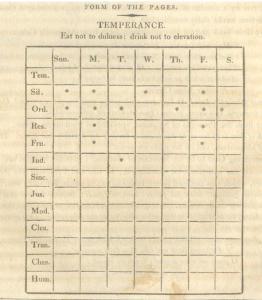 That sure takes a lot of pressure off, doesn’t it?
That sure takes a lot of pressure off, doesn’t it?
So why do we still think we can develop these virtues on our own?
In Galatians 5:16–25, the apostle Paul describes two approaches to life: doing things (or trying to) on our own strength or allowing the Holy Spirit, who indwells every believer, to work in and through us.
We’re a much too independent society—we think we can do anything and everything on our own.
The problem is we can’t.
When we try to develop the fruit (which is singular, by the way, not plural—think of an orange, one fruit with many segments) on our own, we’ll only meet with failure.
But when we submit to and allow the Holy Spirit to work in and through us, He develops this fruit in us. We mature as believers.
What about you? Are you feeling frustrated because you don’t see the Fruit of the Spirit in your character—because you’re trying to mature on your own?
Think of the fruit tree and remember—you don’t produce fruit because of what you do, but because of what you are—a beloved, chosen child of God in whom His Spirit dwells.
Remind me, Lord, that I can do nothing on my own strength, but everything through yours (Philippians 4:13). Amen.
Extra tea: Read and meditate on Galatians 5:16–25
Ben Franklin’s 13 Virtues:
1. Temperance: Eat not to dullness and drink not to elevation.
2. Silence: Speak not but what may benefit others or yourself. Avoid trifling conversation.
3. Order: Let all your things have their places. Let each part of your business have its time.
4. Resolution: Resolve to perform what you ought. Perform without fail what you resolve.
5. Frugality: Make no expense but to do good to others or yourself: i.e. Waste nothing.
6. Industry: Lose no time. Be always employed in something useful. Cut off all unnecessary actions.
7. Sincerity: Use no hurtful deceit. Think innocently and justly; and, if you speak, speak accordingly.
8. Justice: Wrong none, by doing injuries or omitting the benefits that are your duty.
9. Moderation: Avoid extremes. Forebear resenting injuries so much as you think they deserve.
10. Cleanliness: Tolerate no uncleanness in body, clothes or habitation.
11. Chastity: Rarely use venery but for health or offspring; Never to dullness, weakness, or the injury of your own or another’s peace or reputation.
12. Tranquility: Be not disturbed at trifles, or at accidents common or unavoidable.
13. Humility: Imitate Jesus and Socrates.
SOURCE: http://www.flamebright.com/PTPages/Benjamin.asp Ben Franklin’s 13 virtues


God, Me, and a Cup of Tea
- Michele Huey's profile
- 19 followers


